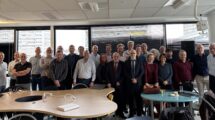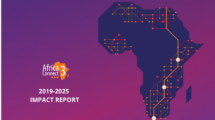The EuroHPC JU announced the signature of a contract with a CSC-led consortium to develop the EuroHPC Federation Platform. It will integrate supercomputing, AI systems, quantum computing & data resources across Europe, enhancing user access to advanced technologies.
Designed to address diverse user needs, this secure and federated platform will cater for the European public and private users, including small and medium-sized enterprises (SMEs). The platform will provide users with a single access point to current EuroHPC supercomputing resources and in the future EuroHPC AI Factories and quantum computers. This ‘one-stop-shop’ approach will ensure greater accessibility and uptake to EuroHPC systems across Europe. The platform will facilitate federated access to data lakes and data spaces across Europe by seamlessly integrating both private and public solutions, including well-established platforms like SIMPL, EOSC, and FENIX.
As a secure, scalable, and flexible hub, the EuroHPC Federation Platform is set to empower Europe’s scientific, industrial, and academic communities and foster innovation in Europe. This initiative is a further step towards the creation of a more connected and innovative supercomputing ecosystem in Europe.
The selected consortium is led by CSC-IT Centre for Science and includes GÉANT, IT4Innovations National Supercomputing Center, University of Tartu, Ghent University, and NORDUnet.
Christos Kanellopoulos, Senior Trust and Identity Manager commented: “The EuroHPC Federation Platform is a major step towards unifying access to High-Performance Computing resources across Europe. By delivering a robust Authentication and Authorisation Infrastructure (AAI) and leveraging MyAccessID as a cornerstone of identity management, GÉANT is proud to support the development of a secure and interoperable ecosystem. This collaboration exemplifies the power of shared expertise and innovation to accelerate scientific discovery and technological progress.”
More details
The total value of the contract is EUR 19,997,000, funded through the EuroHPC JU budget stemming from the Connecting Europe Facility (CEF) (2021–2027) programme.
The consortium was selected following a call for tender EUROHPC/2023/CD/0003, launched in October 2023 which targeted the federation of supercomputers, quantum computers, and data management resources.
Background
The EuroHPC JU is a legal and funding entity, created in 2018 and reviewed in 2021 by Council Regulation (EU) 2021/1173 to enable the European Union and participating countries to coordinate efforts and pool resources with the objective of making Europe a world leader in supercomputing.
In order to equip Europe with a world-leading supercomputing infrastructure, the EuroHPC JU has already procured nine supercomputers, located across Europe. No matter where in Europe they are located, European scientists and industrial users can benefit from these EuroHPC supercomputers via the EuroHPC Access Calls to advance science and support the development of a wide range of applications with industrial, scientific and societal relevance for Europe.
In parallel, the EuroHPC JU is also deploying a European Quantum Computing infrastructure offering access to the widest possible variety of European quantum computing technologies integrated with supercomputers. The EuroHPC JU has recently procured four quantum computers currently being deployed in Poland, Czechia, France, and Germany. More quantum computers will be deployed in a near future in Spain and Italy but also Luxembourg and the Netherlands, introducing cutting-edge quantum technologies not yet available in any other EuroHPC quantum computers.
Recently reviewed by means of Council Regulation (EU) 2024/1732, the EuroHPC JU received a new mandate to develop and operate AI factories. These comprehensive open AI ecosystems centred around EuroHPC supercomputing facilities will support the growth of a highly competitive and innovative AI ecosystem in Europe. Earlier this month, the EuroHPC JU selected the sites that will host the first European AI Factories, set to be deployed next year across Europe: in Finland, Germany, Greece, Italy, Luxembourg, Spain and Sweden.







